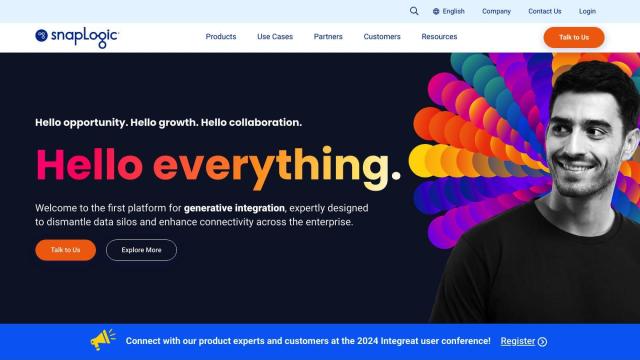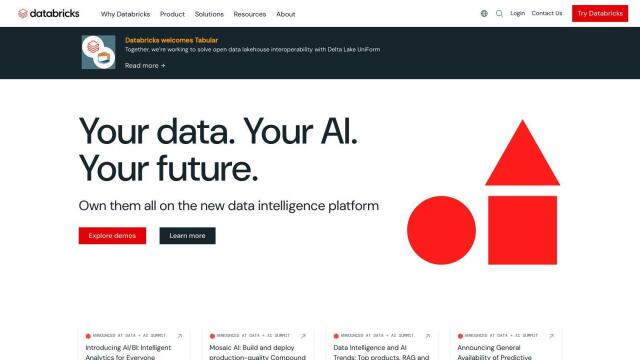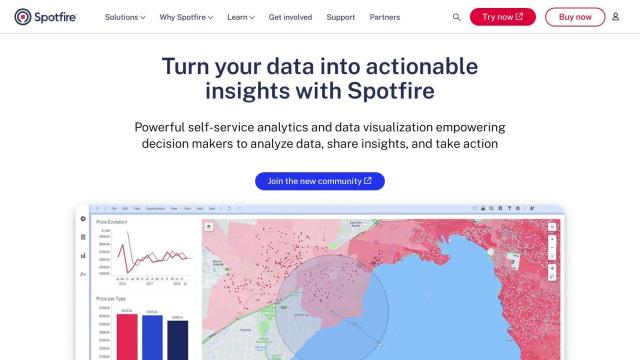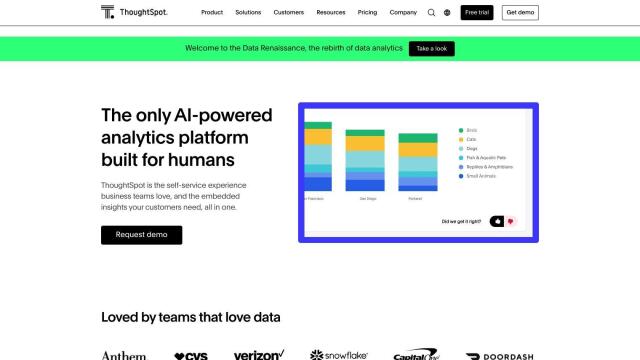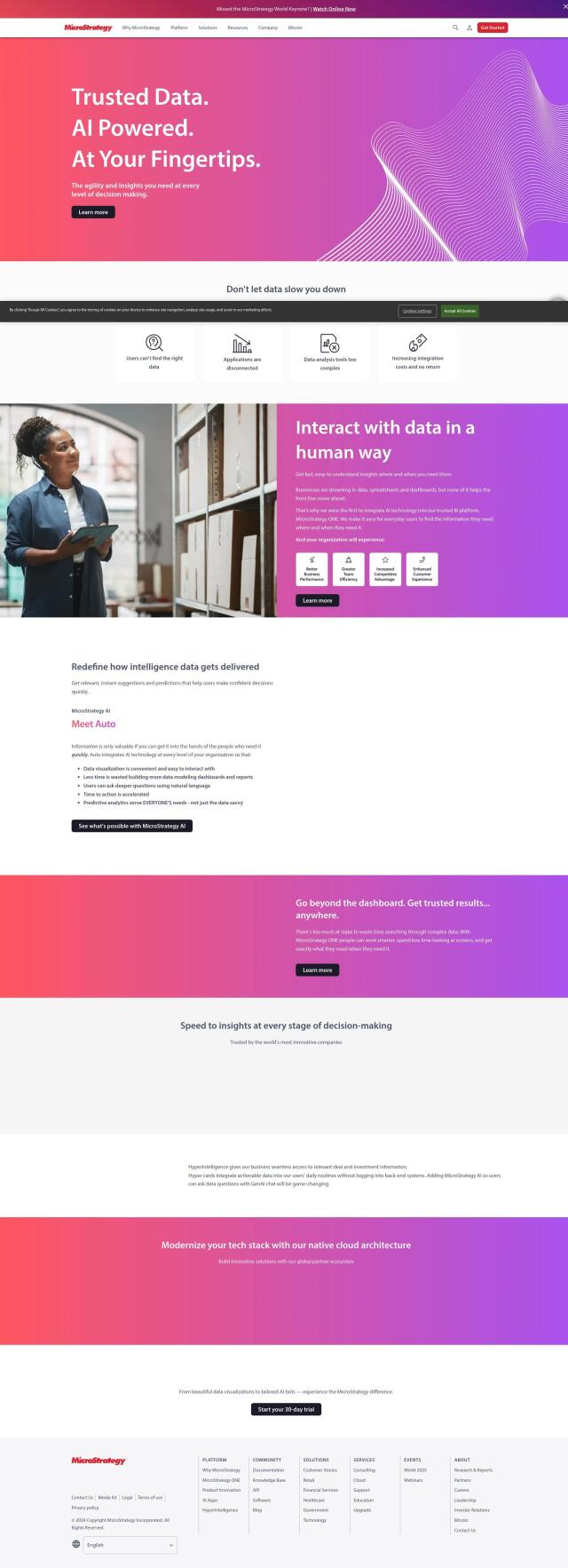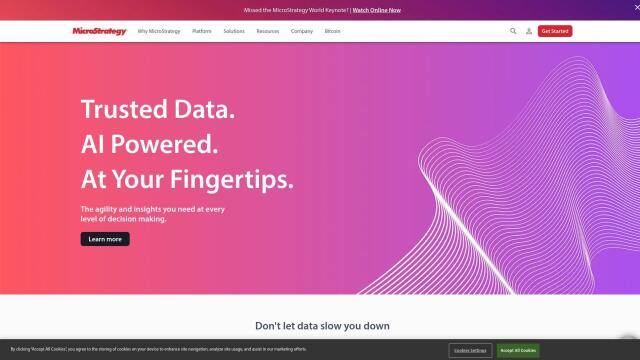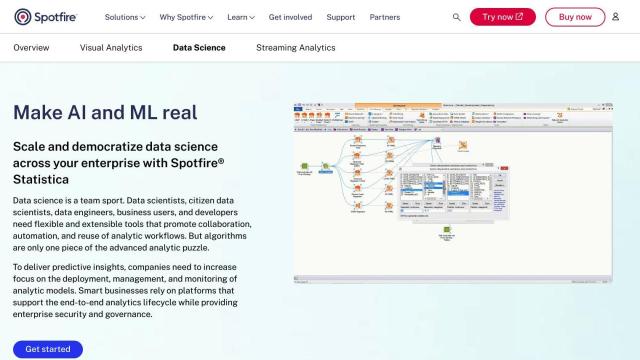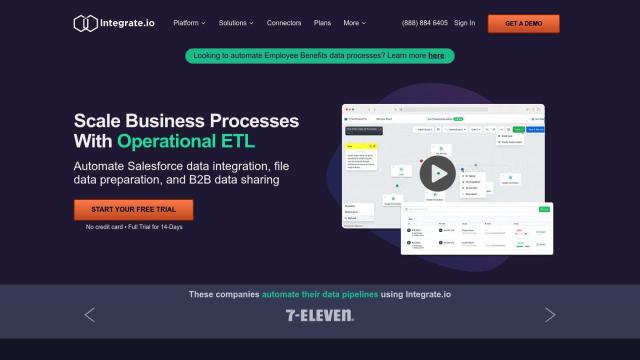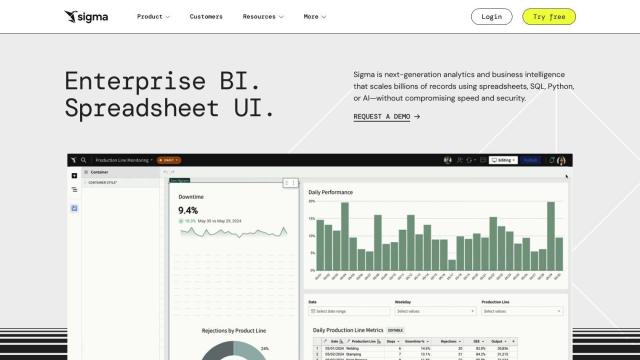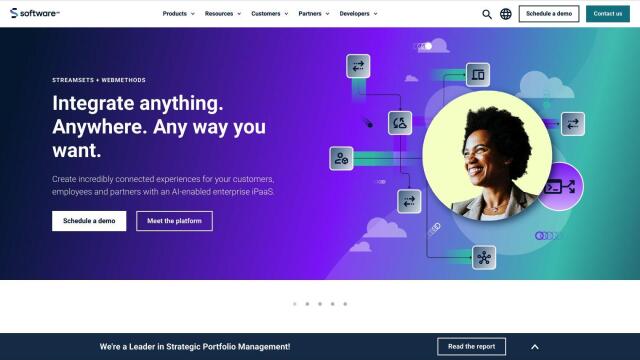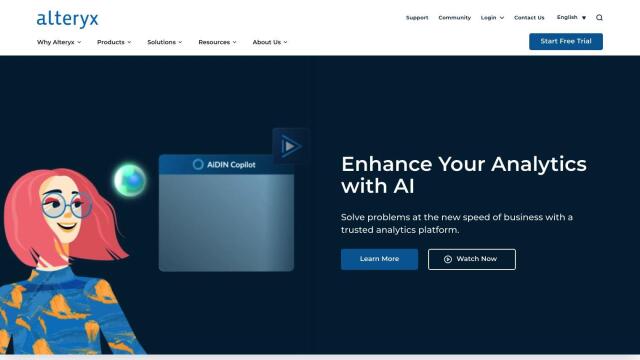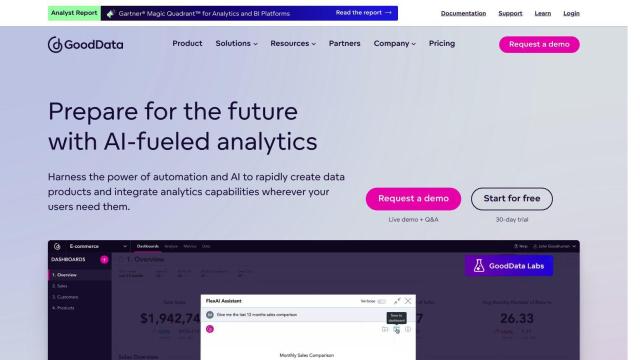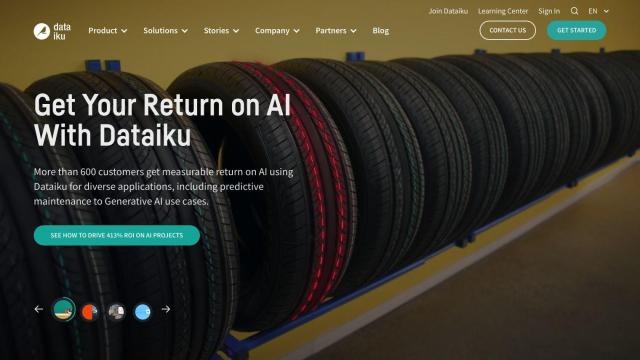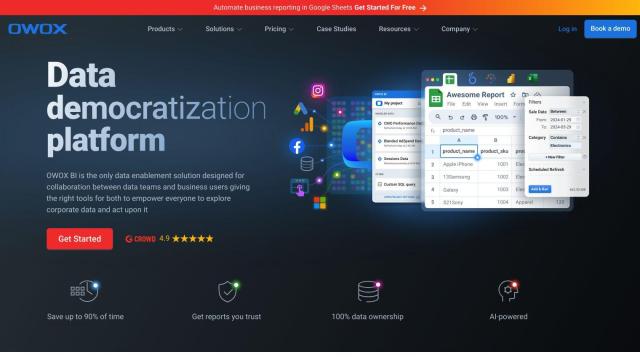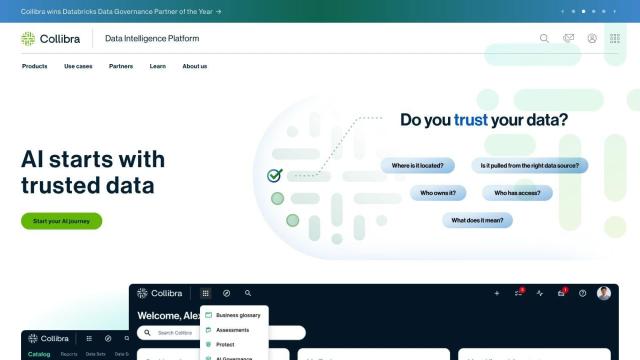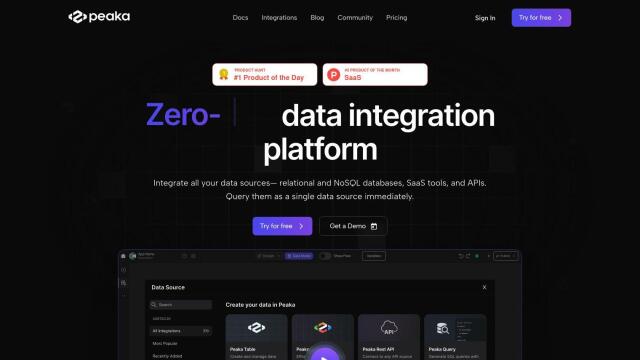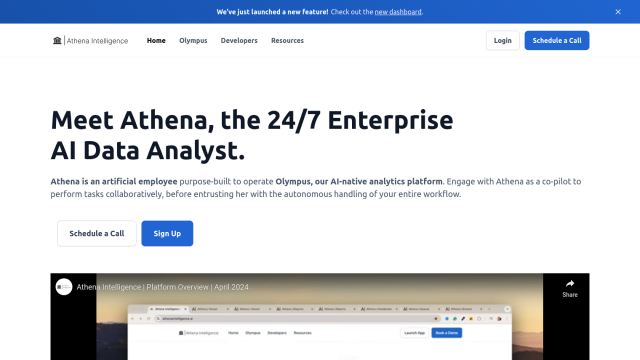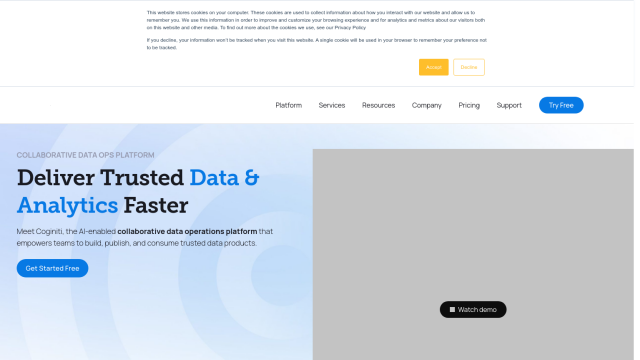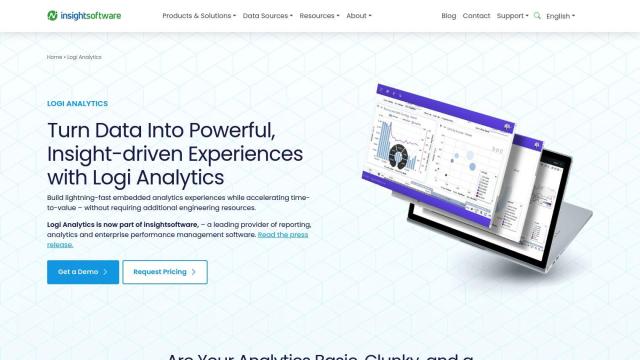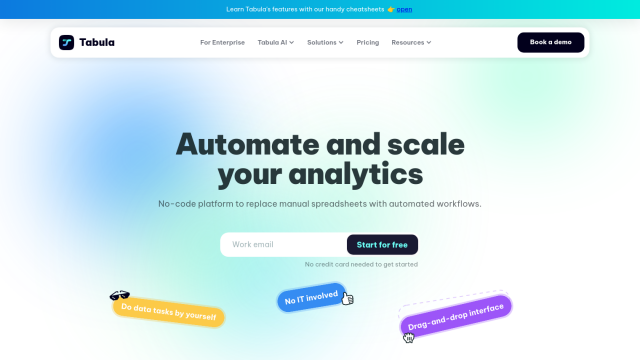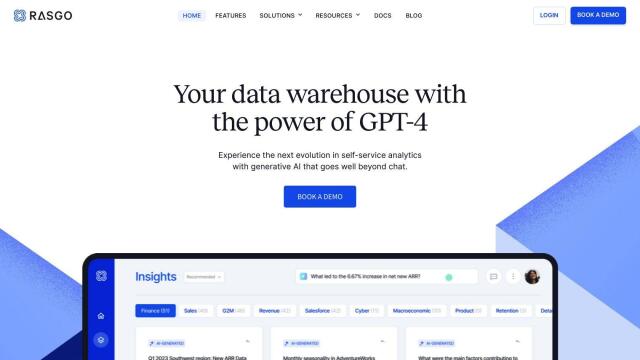Question: Do you know of a solution that can integrate with our existing BI tools and legacy software to simplify data analysis?

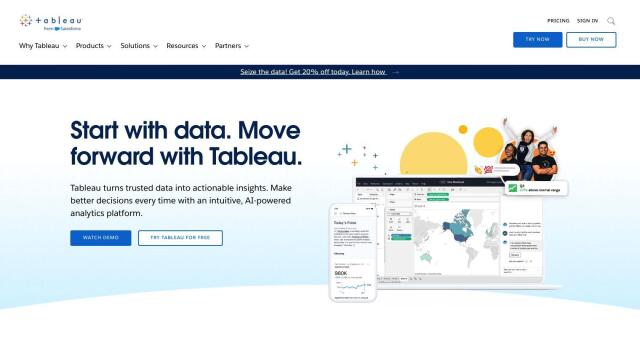
Tableau
If you want to tie your existing BI tools and legacy software into your data analysis, Tableau is a good choice. It can connect to a broad range of databases and build visualizations with drag-and-drop interfaces. Tableau has a range of deployment options, including cloud, on-premises and Salesforce CRM, and has AI/ML abilities, governance and collaboration tools. It's used by Whole Foods Market and Keybank, among others, and can help democratize data and lead to more useful insights.

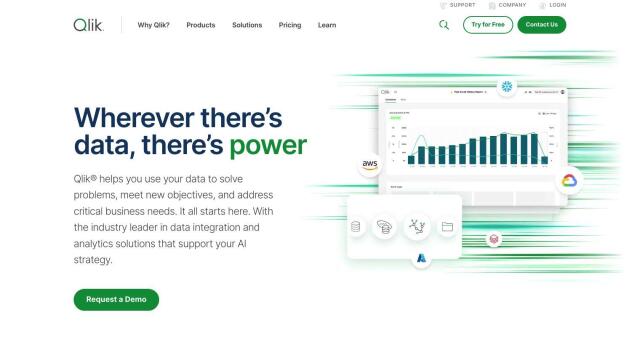
Qlik
Another good option is Qlik, which promises a full suite of data integration, analytics and artificial intelligence. Its rich data fabric and many integration options mean you can tap into hundreds of data sources. Qlik's features include data streaming, application and API integration, data lake creation and AI-powered tools like AutoML. It's geared for different industries and roles, so it should be adaptable to different business needs.

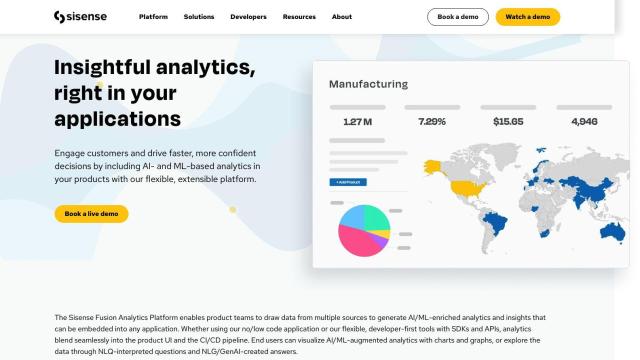
Sisense
If you want to build AI-infused analytics into your products and applications, Sisense is a good choice. It's got built-in data connections, AI and machine learning abilities, and can run on any cloud. Sisense has pro-code, low-code and no-code options for advanced analytics and interactive visualization, so it's pretty flexible to meet your analytics needs.

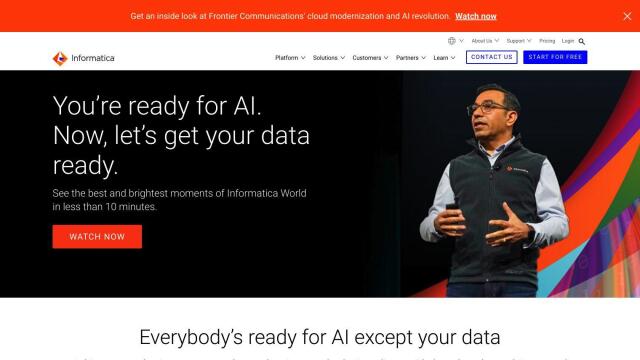
Informatica
Last is Informatica, a cloud-based data management tool that connects, manages and unifies data across multi-cloud and hybrid environments. It uses its CLAIRE AI engine to automate data integration tasks and has features like data catalog, data quality and governance. Informatica is good for companies trying to modernize their data management and make their data more AI-ready.

